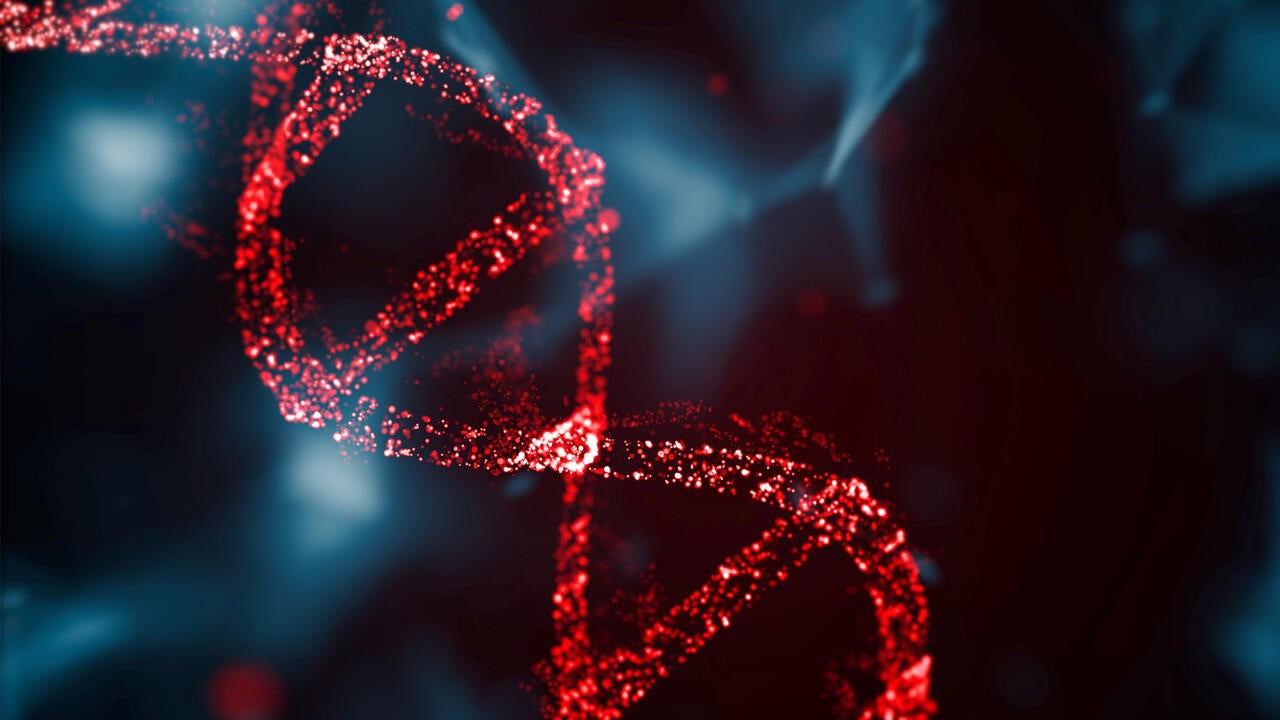
Leading the charge in treating cancer
A driving need for continuous improvement and a passion for science leads Yvonne Stevens (BSc ’94, MSc ’98) one step closer to finding an effective treatment for solid cancerous tumors

A driving need for continuous improvement and a passion for science leads Yvonne Stevens (BSc ’94, MSc ’98) one step closer to finding an effective treatment for solid cancerous tumors
By Sharon McFarlane Faculty of Science
Yvonne Stevens
(BSc ’94, MSc ’98)
> Associate Director of Quality Control, Lyell Immunopharma
By the time Yvonne Stevens (BSc ’94, MSc ’98) turned 14, she already knew that she wanted to be a scientist. Having grown up in a large family, headed by a single mother, Yvette Stevens, who was an electrical engineer, Yvonne already had the support and drive to make her career dreams a reality. Her ambitions would take her from her home country of Switzerland to Waterloo’s Faculty of Science to study Biochemistry.
“About half way through my program, I realized that my interest really lay in the biology side of things versus chemistry,” Stevens admits. “I was fortunate enough to continue my MSc studies studying plant molecular biology in Barb Moffatt’s lab. It was during these years that my interest in molecular biology was solidified and I started appreciating the power and potential held by the ability to manipulate DNA.”
Stevens’ passion soon brought her to the University of Washington where because of her visa limits, she could only pursue volunteer work in Pathology and Botany labs for the first year. Eventually she was granted her work visa and after working at the Primate Research Centre conducting HIV research for six years, her research interest shifted from plants to animals. She worked in research and development on diagnostic kits for West Nile Virus and Dengue Virus, and eventually found herself transitioning into quality control which she describes as her "career path moment." Stevens moved to Juno Therapeutics and took a position in quality control as a molecular biology specialist which allowed her to combine her interests. Soon after she became a quality control manger and was involved in manufacturing therapies for cancer which she says remains one of the most rewarding aspects of her career. “A highlight of my time at Juno was an encounter with a patient who grabbed my hands and with tears in her eyes said ‘thank you’. I could never fully explain the footprint that she left on my heart that day.”
Stevens was quick to realize that she was immersed in a very white, very male, dominated workforce and knew that she could not afford to be intimidated by that fact. “We need to see more females in science, more women in the labs,” she says. “Women have the capacity to be incredible leaders, and stand out on their own merits. Women have deep emotional intelligence and I think that is one of the reasons we are great leaders.”
Stevens is particularly proud of the diverse team she’s assembled at her current company, Lyell Immunopharma, a new innovative company committed to using immunotherapy to cure solid tumors. Her leadership goals for her team is to make them feel inspired, feel connected to their work and been seen as equals to her and their fellow teammates. So far, it’s a plan that has worked well and according to Stevens, is appreciated by the people she leads.
Being part of the development of successful cancer treatments using immunotherapy has been notable high point in her career. As of last week, Juno Technologies had their treatment approved by the FDA.
“I can’t tell you how rewarding it is to be a part of that. In five years to go from development to approval … some people go a lifetime without accomplishing that.”
The cancer treatment, as Stevens describes, works on blood cancers like B cell lymphomas. Cancer fighting cells are extracted from a patient and undergo a process of genetic engineering whereby these cells are turned into aggressive, super cells that fight cancer once they are reintroduced to the body. Immunotherapy uses the body’s own cells to fight cancer. The engineered cells have to go through several key stages and a number of safety, potency and quality tests before they are ready to go back into a patient’s bloodstream. This reintroduction is simply done using an IV into the patient’s arm.
“Treating blood cancer patients in this way can greatly reduce the strain on the body from traditional methods like chemotherapy,” she explains. “With chemotherapy, the full body experiences the side effects of the drug. Hair falls out, the body gets weak. But with this technology, it’s cancer that’s specifically targeted, and that spares the rest of the body.”
Women in science and women leaders are concepts that are not foreign to Stevens. In fact, she has an older sister Rebecca Stevens Alder who studied at York and a twin sister Yvette Petersen, who came with her to Canada to study science at Western University. Although her twin sister returned to work back in Switzerland for Roche, Stevens maintains that her sister is both a best friend and her best advocate.
Seeing the next generation of girls show an interest in science is a soft spot for Stevens. She was asked recently to speak at her son’s school about careers. The feedback from the girls in the class was overwhelming and she recalls one student in particular who called Yvonne a “Female Science Warrior who carried a spear to fight cancer.”
For now, Stevens is excited to continue working with Lyell Immunopharma and being a part of their quest to find an effective treatment for solid cancerous tumors and ensuring the highest quality of product to save people’s lives. When asked if she sees herself as a role model for other women, Stevens is quick with a smile. “I hope I am. I would love to think that there is a little girl out there who could look at who I am and what I do and say, ‘that’s me! I can do that too!’”
Yvonne lives in Seattle with her son Sebastian, 14 and her husband Peter. Her daughter Bryanna is in her second year at Bristol University, UK studying Law and French.

Read more
Waterloo spinoff company is developing a new vaccine platform that could lead to a faster response when the next global health crisis hits

Read more
Undergraduate Science student finds a way to address children's back to school anxiety during the pandemic

Read more
A PhD student partners with Indigenous elders and fishers to understand a changing fish population in Nunavut
The University of Waterloo acknowledges that much of our work takes place on the traditional territory of the Neutral, Anishinaabeg, and Haudenosaunee peoples. Our main campus is situated on the Haldimand Tract, the land granted to the Six Nations that includes six miles on each side of the Grand River. Our active work toward reconciliation takes place across our campuses through research, learning, teaching, and community building, and is co-ordinated within the Office of Indigenous Relations.